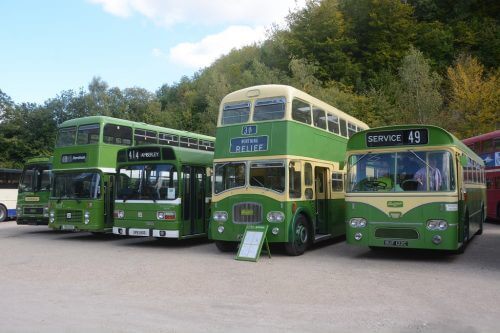
Chris Pearce is a Revenue Inspector with Stagecoach South, a job he loves, but as he explained to Andy Izatt, he also has a passion for old buses some of which he operates on his own O-licence. What he enjoys most are the people he meets.
Chris Pearce has a love of life and people that pervades everything he does. That’s whether it’s his work – he’s still employed by Stagecoach South three days a week as a Revenue Inspector despite being comfortably past normal retirement age – or his other main interest, which is his passion for old buses. He currently owns around 19, but it’s a movable feast, not least because he’ll frequently step in if he feels that a vehicle that should be saved is under threat. He’s also not one for letting an opportunity pass if something special becomes available.
As this article was being prepared, a Southdown ‘Queen Mary’ Leyland PD3/4 Northern Counties had been sold to make way for a Stockport East Lancs-bodied Leyland PD3/14, notable because it was one of the last front-engined Titans built. Another rarity acquired recently is a former Portsmouth all Leyland PD2/10 dating from 1952 that had been in long-term storage and kept out of sight for more than four decades.
With his employer’s consent Chris has his own O-licence for Worthing-based Southdown Historic Vehicles, a limited company that he uses to operate a small number of heritage buses on specialist hires. Much of what he does commercially is in conjunction with Stagecoach South or with colleagues who work for the company. There are a good number there who share his enthusiasm, but he also undertakes a variety of other work as well. He is well connected and regarded across the wider preservation movement.[…]
By subscribing you will benefit from:
- Operator & Supplier Profiles
- Face-to-Face Interviews
- Lastest News
- Test Drives and Reviews
- Legal Updates
- Route Focus
- Industry Insider Opinions
- Passenger Perspective
- Vehicle Launches
- and much more!


